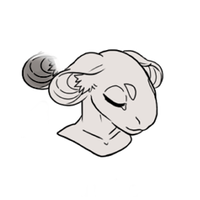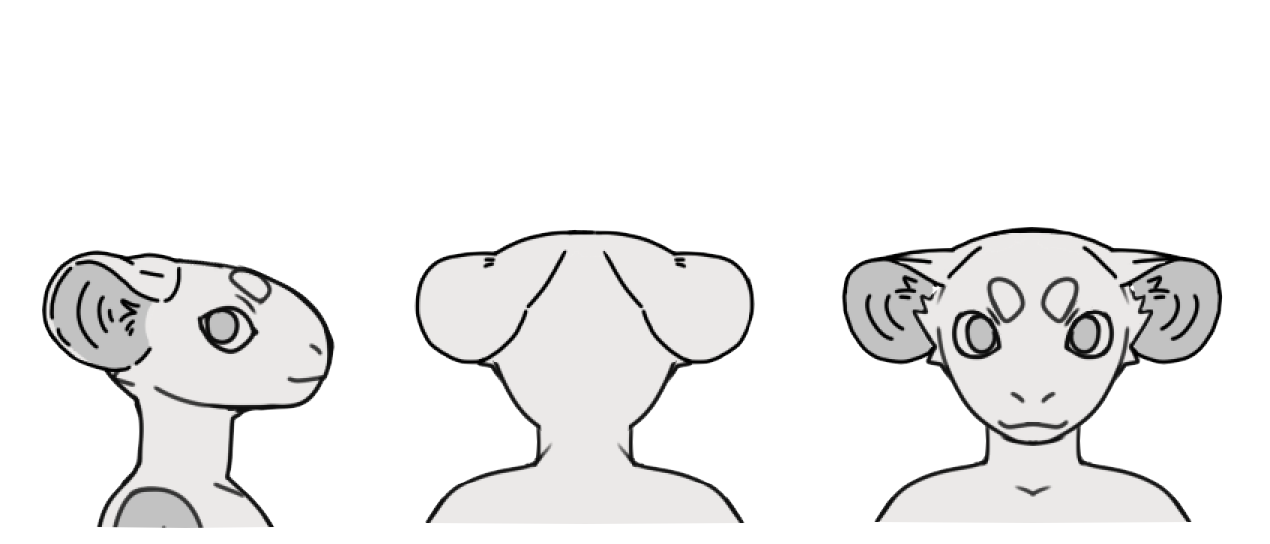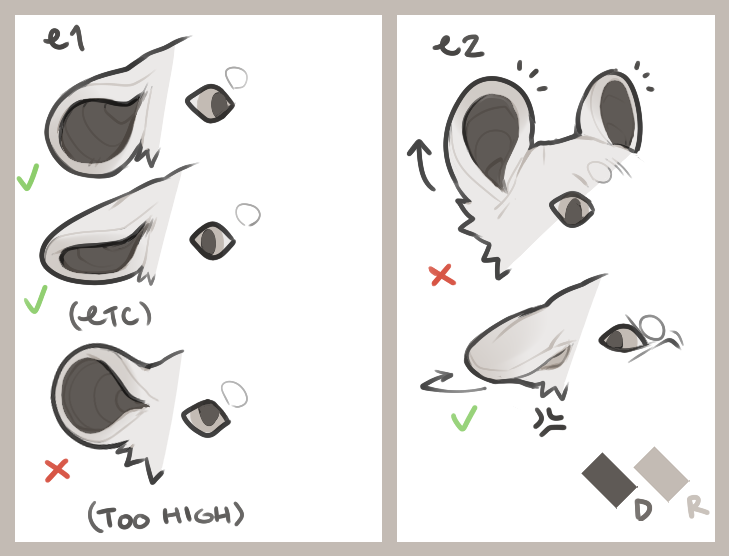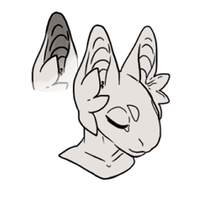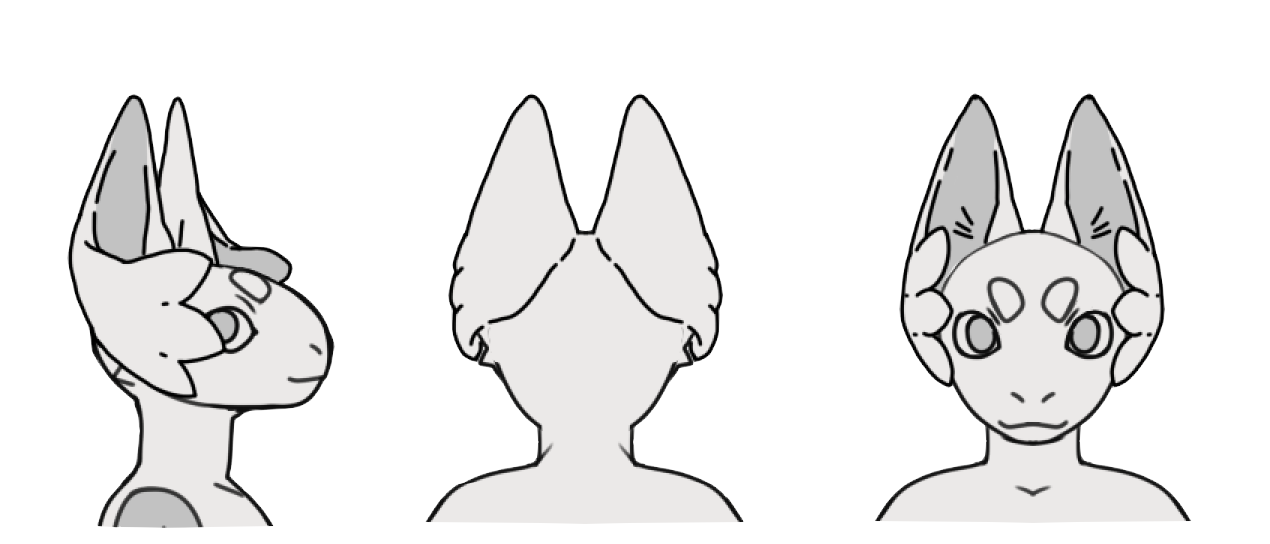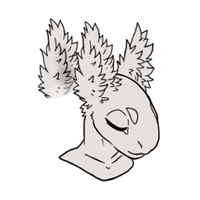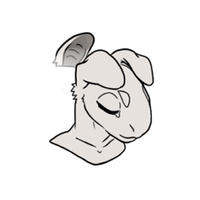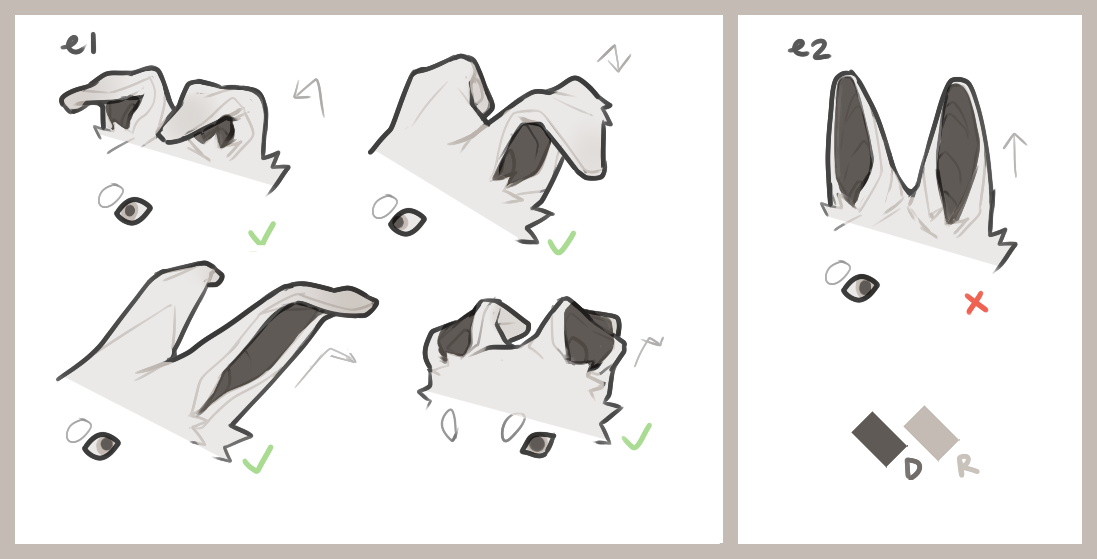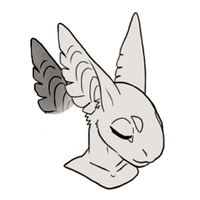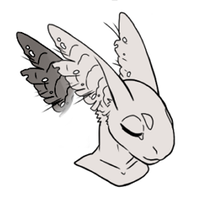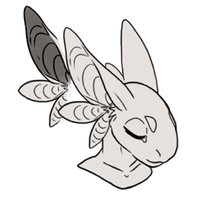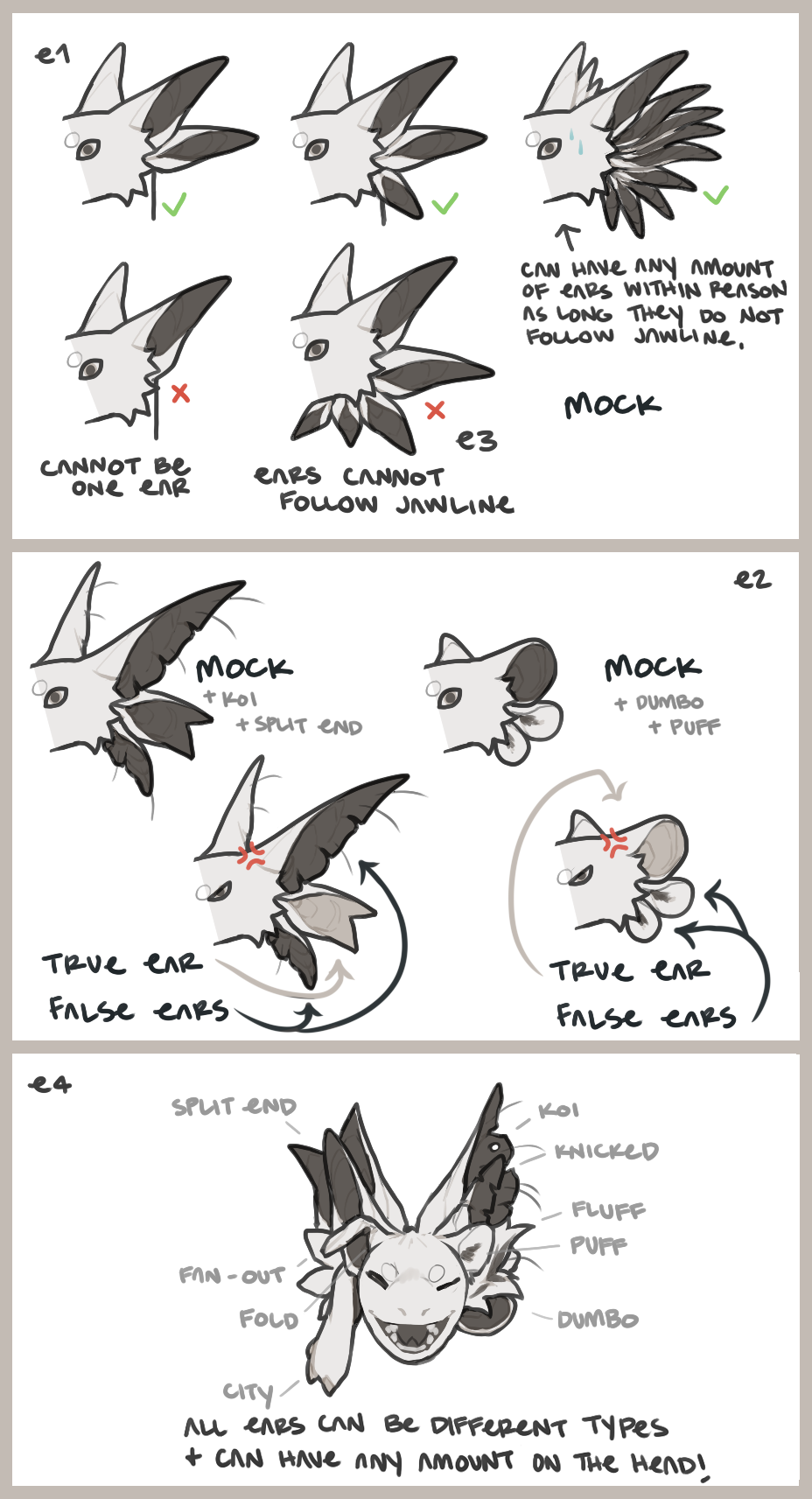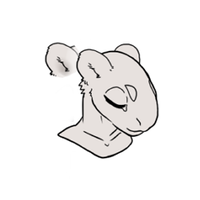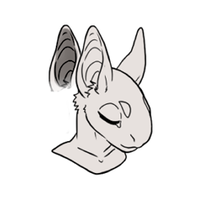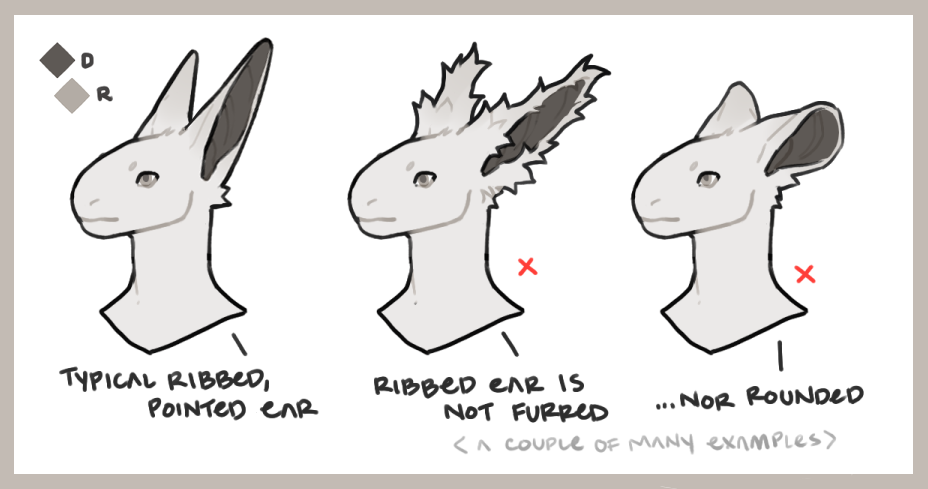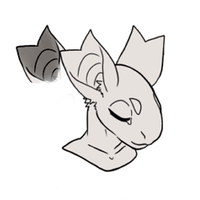Traits
Ear Trait
Damaged Ears (Modifier Trait)
Description:
Cuts, burns, tears etc. that can be shown on any type of ear!
Requirement:
-
Ears have to show some kind of wear.
-
Any scarring must show the dominant color and change to recessive with the rush as per usual with scars.
-
One ear may be visibly cropped, however both ears cannot be cropped or damaged to that point. (See image E.1)
-
The ears may have any level of damage as long as at least one ear is relatively intact. (See image E.2)
Illustrations by Snappy
Long (Modifier Trait)

Description:
Ears that are excessively long. The long ear trait is often used in trait-mixing to modify the typical length/shape of the other ear-type traits.
City (Public)

Description:
Clawed, prehensile ears that naturally hang down against the head when at rest. They are able to grab or manipulate small objects up to a pound.
Requirement:
-
Ears have to hang straight down when at rest.
-
Each individual claw must be solidly colored with either the dominant or recessive blood color, but can be mixed on a single ear or both. (See image E.1)
- The Claws need to be visible on the masterlist image.
-
Claws are typically located along the rim of the ear, but can also appear on the back and front of the ear. (See image E.2)
-
They may NOT be located anywhere in the inner-shell/concha of the ear. (See image E.3)
-
Minimum of one claw per ear, no maximum claw limit. (within reason with regards to the grem’s comfort). Size of claws cannot be so large as to encumber or cause discomfort to the grem.
-
Claws can have simple shapes as long as they are functional as claws. Some shapes include diamond, square, rectangle, rounded, overgrown, thin etc. (See image E.4)
-
They cannot be located at the base of the ear or have any other markings on them. They cannot resemble horns. (See image E.5)
Illustrations by Snappy
Dangled Ears (Public)
Description:
Ears that are long and pointed, and have a distinct bend along the ear, after which it becomes soft and forms curls, twists, or crinkles down to the tip. Anything before the bend still retains its normal mobility.
Requirement:
Fluff (Public)

Description:
Ears that are fully or partially covered in fur that can somewhat obscure the inner-membrane of the ear. Though this can obscure some of the dominant blood color, the fur does not grow from the concha.
Requirement:
- At least a sliver of the dominant colour must be visible. (See E.1)
- Fur must come off of the ear itself but does not have to cover the whole ear. (ex. lynx ears) (See E.2)
- Fluff grows fairly wild and light compared to the dense, uniform fur of Puff ears. (See E.3)
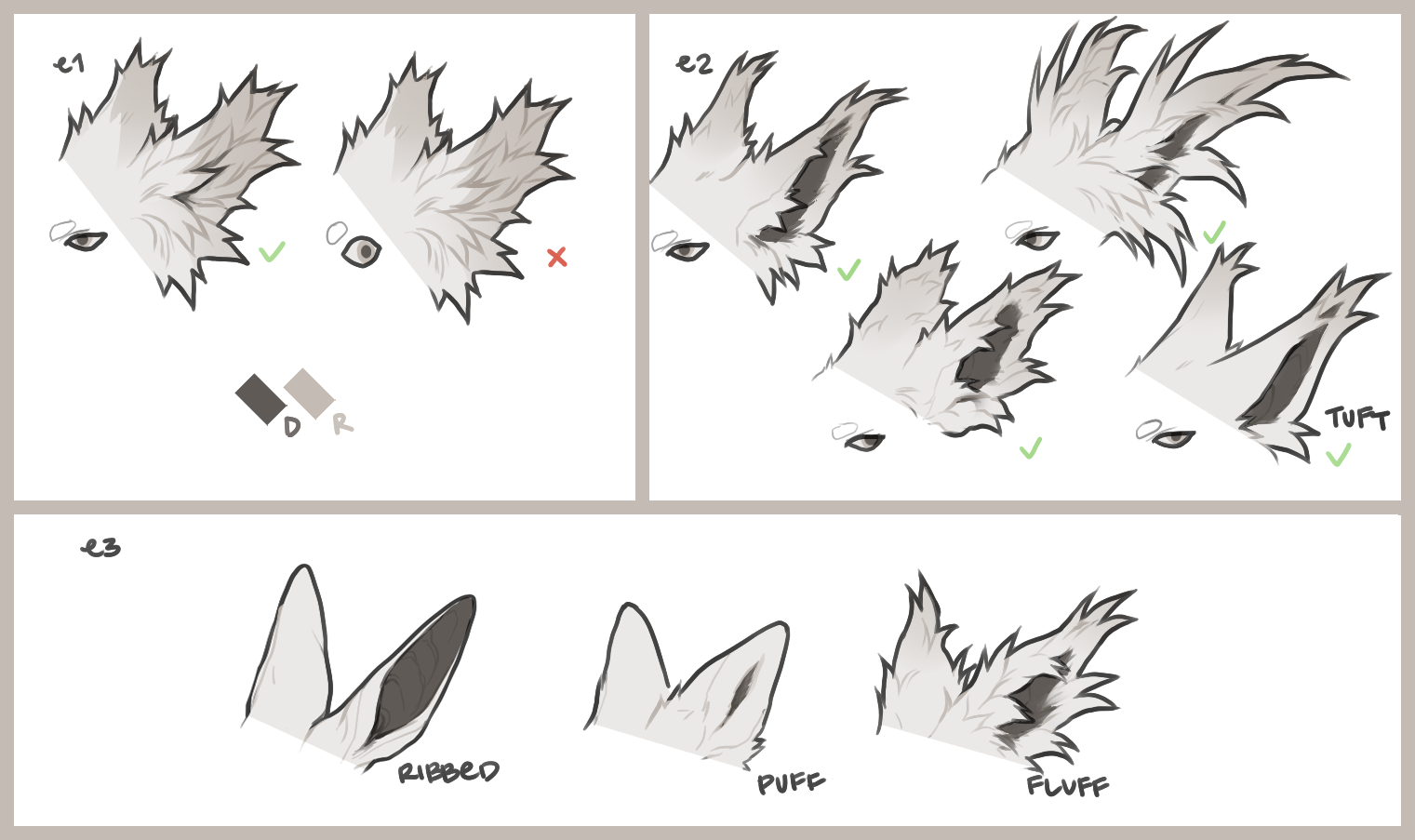
Illustrations by Snappy
Fold (Public)
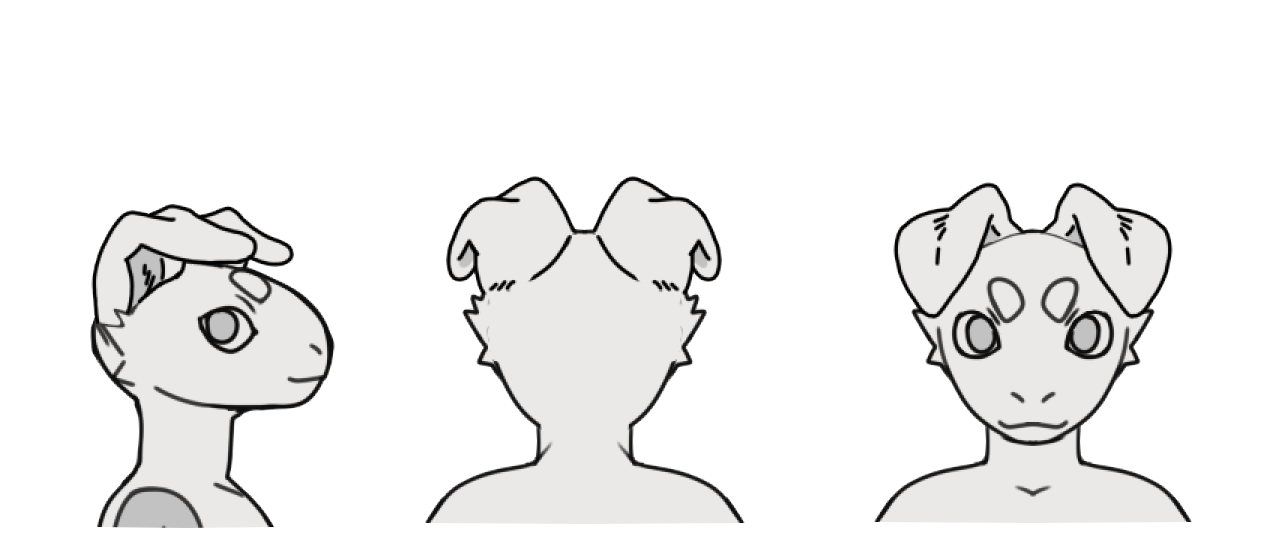
Description:
Ears that fold like a puppy’s. Typically they fold about halfway up the ear but can fold lower or higher as long as there is a clear amount of stiff cartilage present.
Requirement:
- Must have a fold somewhere along the ear. (See E.1)
- They don’t perk up past the fold but have normal mobility otherwise. (See E.2)
Illustrations by Snappy
Knicked (Public)
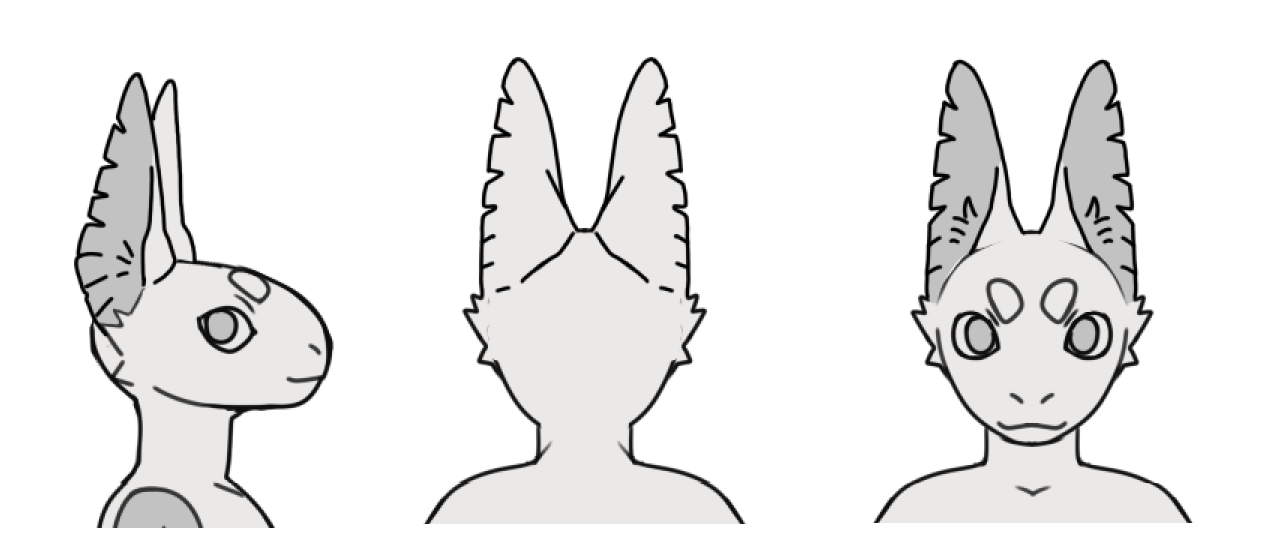
Description:
Ears that are notched along the edges, typically along the bottom, creating a segmented appearance. Notches are typically uniform in spacing and depth, though some irregularity is possible. (See image E.1 and E.2)
Requirement:
- Must have a clean edged look.
- Must appear to have notches or cuts INTO the ear, not additional lobes that extend past the natural shape of the ear. (See image E.2)
- Please keep in mind the distinction between Fan-out, Knicked and Koi. Fan-out has additions of lobes onto the ear, Knicked has cuts or nicks INTO the ear while Koi has the appearance of ragged tears into the ear in addition to little whisker-like hairs. (See Image E.3)
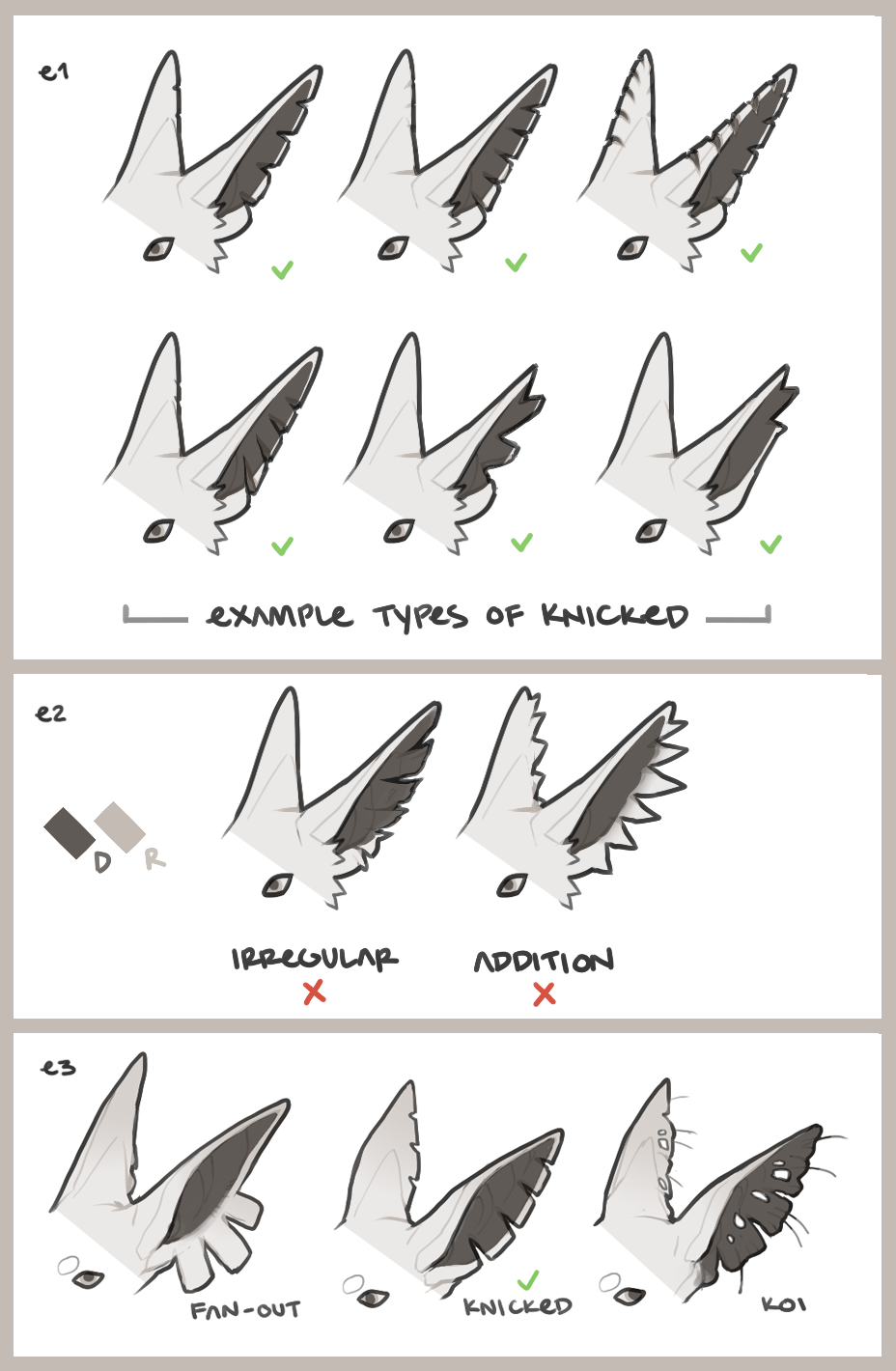
Illustrations by Snappy
Koi (Public)
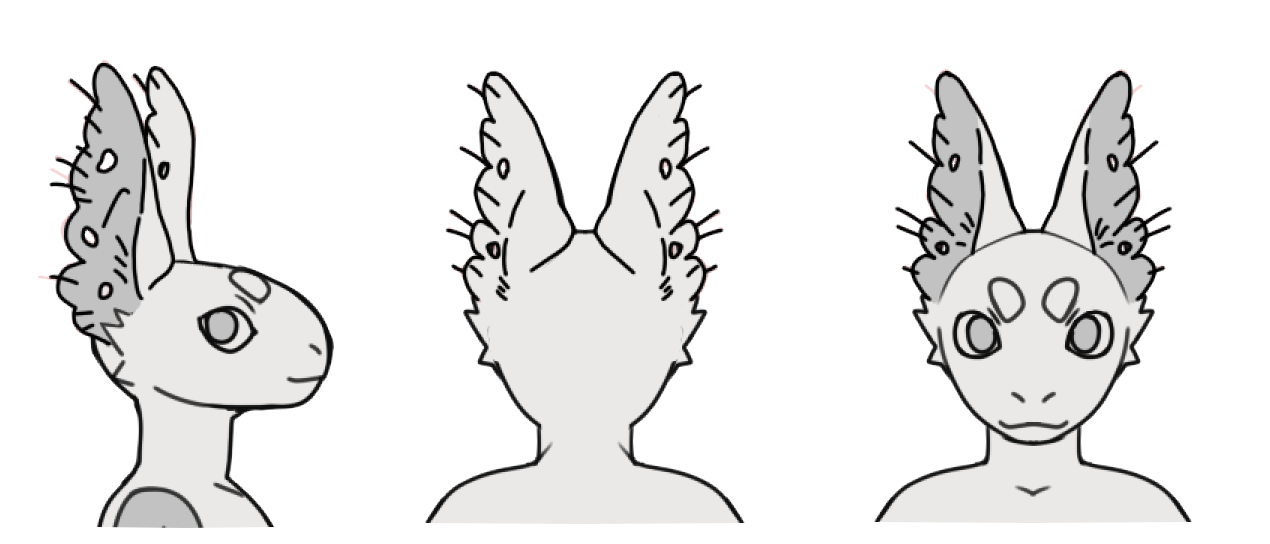
Description:
A thin-membraned ear that lacks a bottom lobe giving an appearance similar to a fish's fin. The ear’s ribbing is wavy, and the lower edge is irregularly segmented and interspersed with small whisker-like hairs, often creating a torn and ragged appearance. Typically showcases holes throughout the membrane, although these are not required. (See image E.3)
Requirement:
- The irregular segments cut into the bottom edge of the ear can have different variations. (See image E.1)
- Must have whisker like hairs. (See image E.2)
- Cannot have a bottom lobe. (See image E.4)
- With no bottom lobe, dominant color must extend all the way to the bottom edge of the ear.
- Please keep in mind the distinction between Fan-out, Knicked and Koi. Fan-out has additions of lobes onto the ear, Knicked has cuts or nicks INTO the ear while Koi has the appearance of ragged tears into the ear in addition to little whisker-like hairs. (See Image E.5)
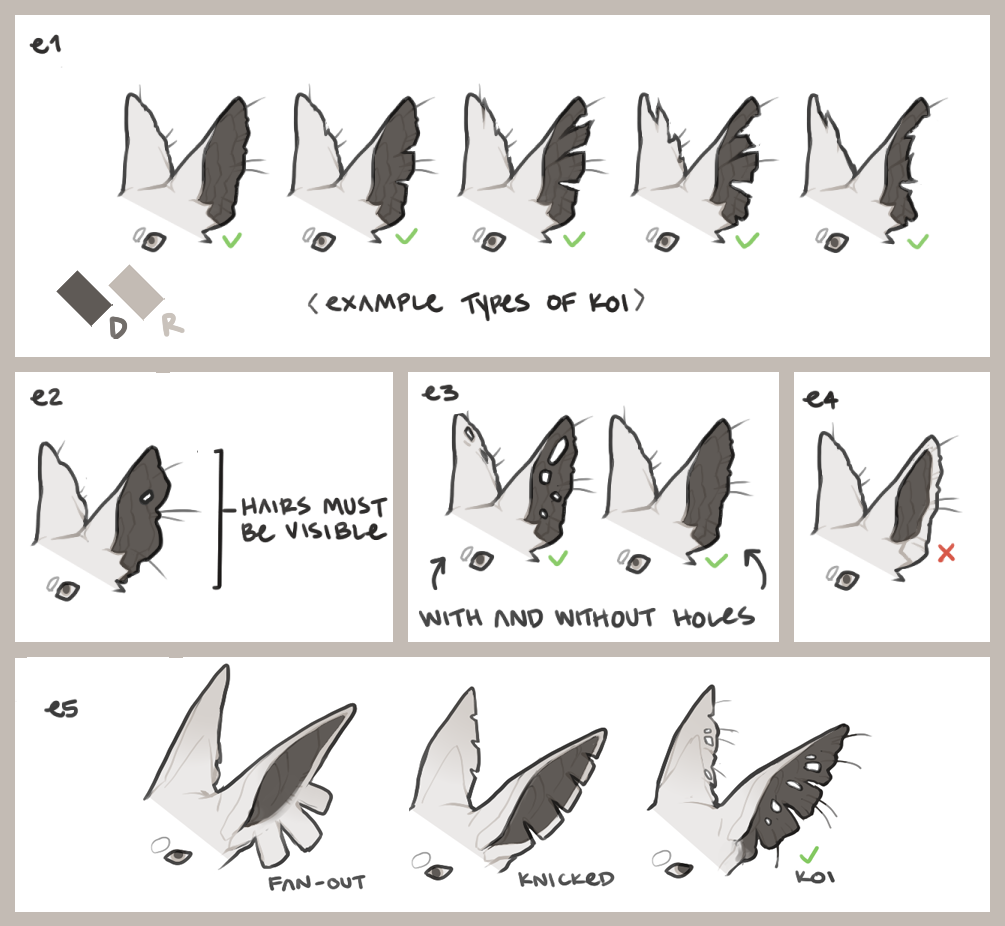
Illustrations by Snappy
Mock (Public)
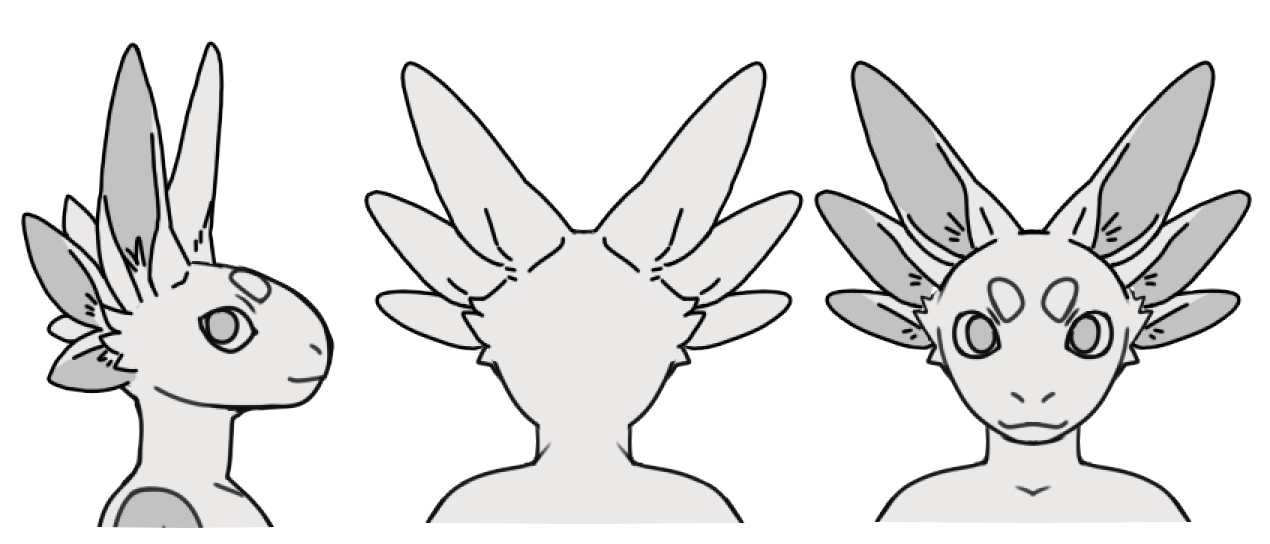
Description:
Allows for the presence of multiple “false” ears in addition to the primary “true” ears. These additional appendages are decorative and do not change color with the blood-rule. In fact they do not need to have the dominant color at all so long as it is a single flat color.
Requirement:
- At least one extra false-ear rooted adjacent to the real ear. (See images in E.1)
- No blood change in false-ears. (See images E.2)
- All ears must be attached on the head and not the jawline of the grem. (See image E.3)
- Trait mixing can be used to mix-and-match mock ears in any way. Mock ears do not have to match in shape or number on either side of the head. (See image E.4)
Illustrations by Snappy
Puff (Public)

Description:
Ears that are small, round, and covered with dense but uniform fur that almost completely enclose the inner-ear, leaving only a slight view of the blood color.
Requirement:
- A sliver or hint of the blood color must show; remainder of the ear is filled with dense fur. (See image E1 and E3)
- Alternatively, the lobes of the ears themselves can be very thick but must obscure the inner ear in the same fashion. (See image E2)
- Must be small and rounded.
- Ears must have broken up lineart where the original inside of the ear starts under the fur, only around the inner ear sliver or "window" can the lineart be solidly intact

Illustrations by Snappy
Split (Public)
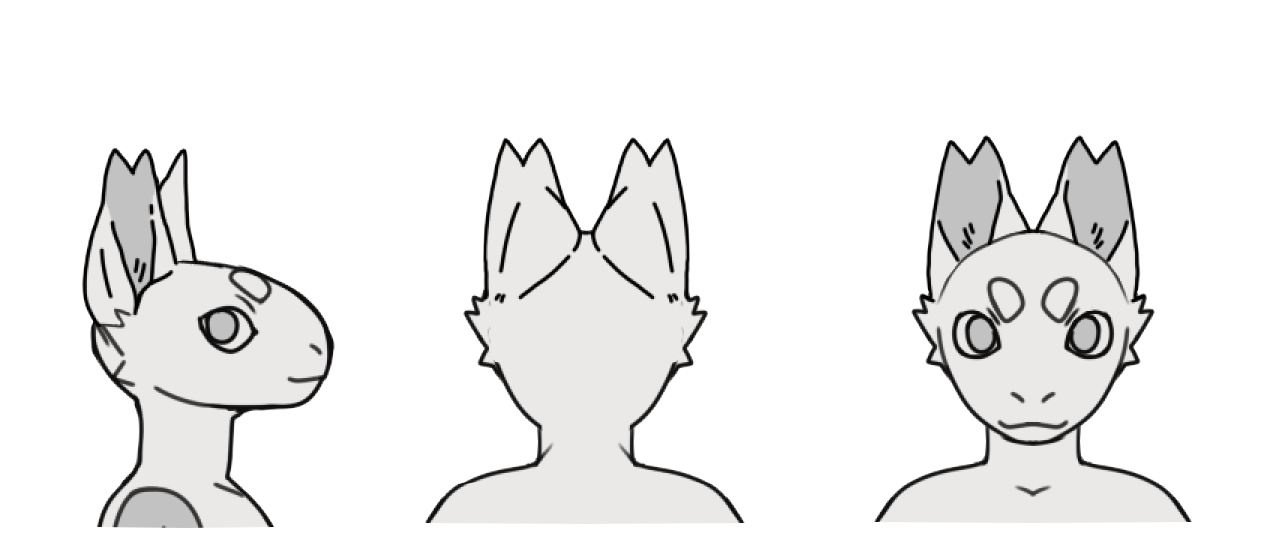
Description:
Ears that have a wedge-shaped split in the end of the ear.
Requirement:
- Split cannot be deeper than 2/3 into the ear (concha must be intact). (See image E1)
- Split is always cut into the tip of the ear, not into the top or bottom lobes. (See image E2)
- The split is cut into the flesh, not shaped fur. (See image E3)
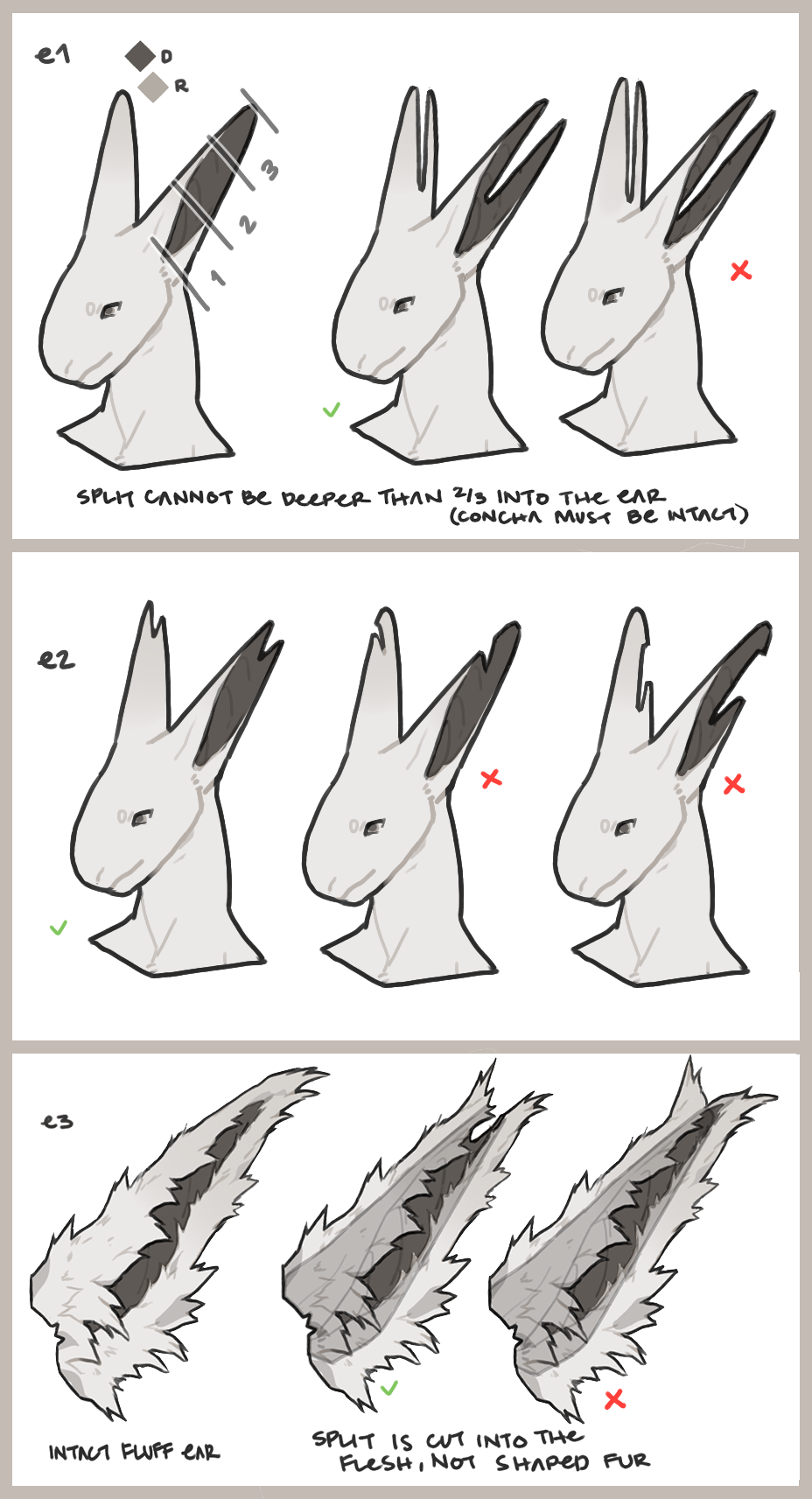
Illustrations by Snappy



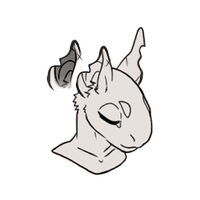

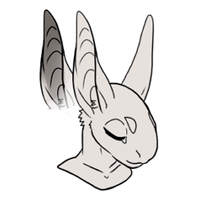
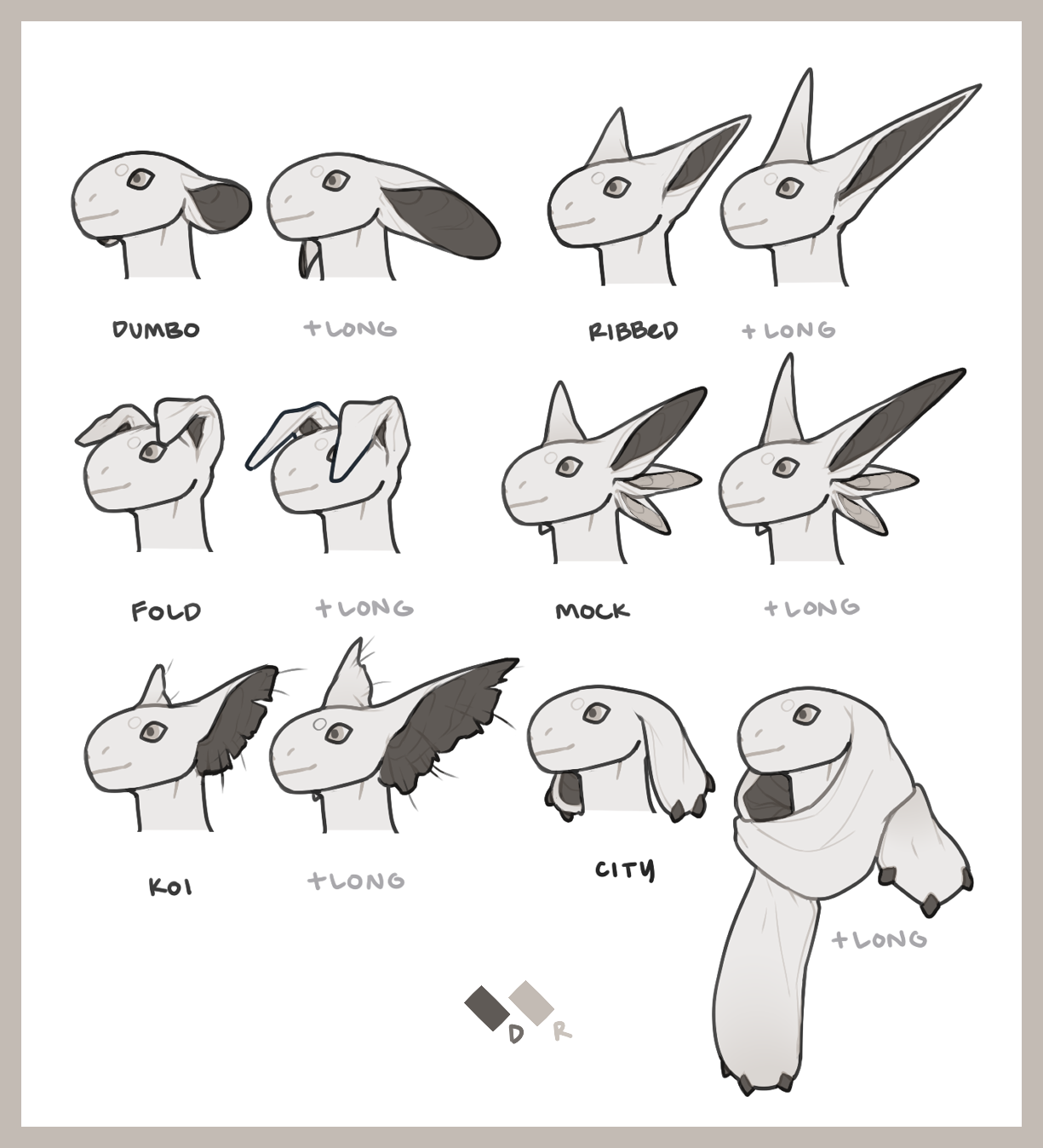
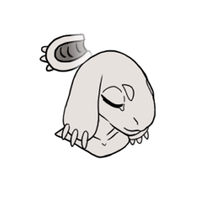

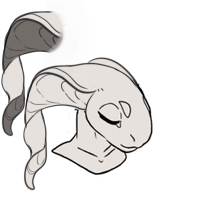
.png)
